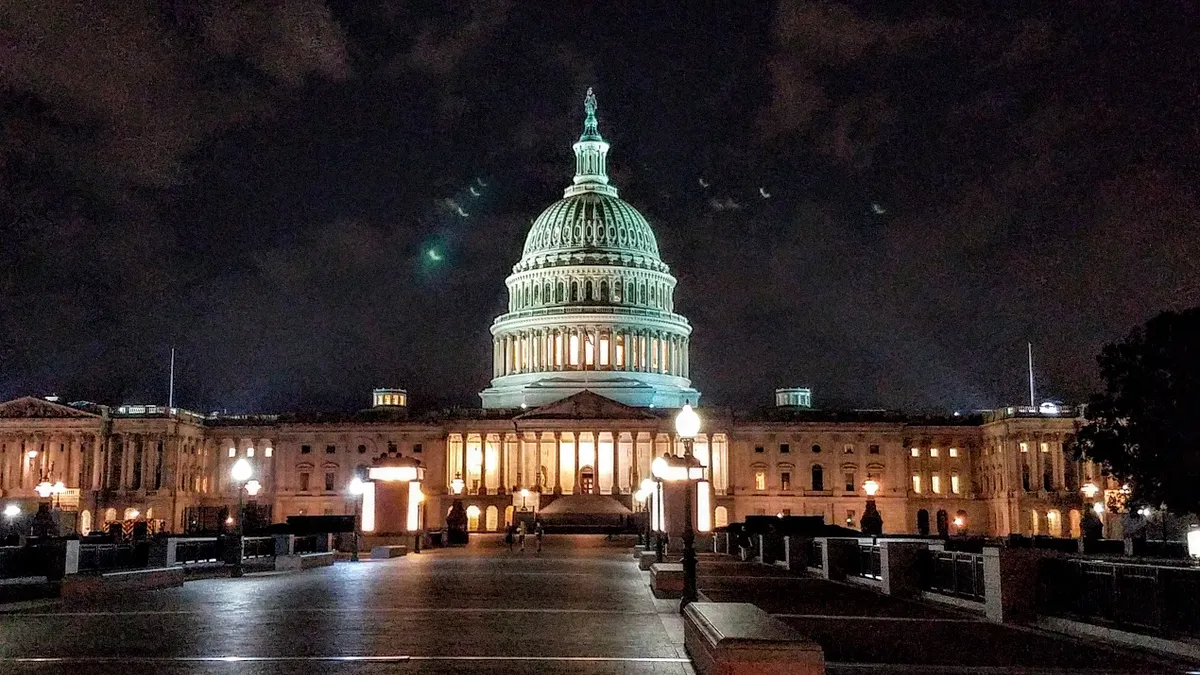In an all-night voting blitz — dubbed a vote-a-rama — the Senate approved a budget resolution for President Joe Biden's $1.9 trillion COVID-19 relief package, which included several amendments that would impact the restaurant industry. The passage of the budget resolution will allow Democrats to pass Biden's plan with a simple majority in the Senate.
While voting began Thursday afternoon and lasted until early Friday morning, support for the Restaurant Rescue Plan came early in the process yesterday. A significant majority of senators, 90-10, signaled support to establish a restaurant relief grant fund. The amendment is based on the Restaurants Act and establishes a Restaurant Revitalization Fund. Eateries will not need to pay back their grants and can use the funding for benefits, sick leave, mortgages, rent, payroll, maintenance, supplies, protective equipment, cleaning equipment, food and any other essential expenses. A dollar amount for the proposal has not yet been disclosed.
Supporting America’s restaurants has strong bipartisan support. I will continue to advance proposals to provide the targeted relief necessary to help keep local restaurants open as our nation works to finish the fight against COVID-19. @IndpRestaurants @WeRRestaurants https://t.co/W6IzaPgHL6
— Senator Roger Wicker (@SenatorWicker) February 4, 2021
In another vote, one Republican amendment sought to block Congress from hiking the federal minimum wage to $15 per hour during the pandemic. The Senate approved the amendment after Sen. Bernie Sanders clarified that Democrats aim to raise the wage over several years, not during the current crisis.
"There is undeniable bipartisan support across the country for a dedicated restaurant relief fund. The Senate knows that the only way we can fully recover our economy is to ensure neighborhood restaurants and bars can survive and continue employing over 11 million people," Erika Polmar, executive director of the Independent Restaurant Coalition, said in a statement.
The bipartisan support for targeted funds was followed on Friday with the reintroduction of the Restaurants Act by Sens. Roger Wicker (R-MS) and Kyrsten Sinema (D-AZ), and Reps. Earl Blumenauer (D-OR) and Brian Fitzpatrick (R-PA).
The Restaurants Act of 2021 is similar to the legislation proposed last year, and seeks to create a $120 billion Restaurant Revitalization Fund for restaurants and bars that have no more than 20 establishments. Restaurants could receive up to $10 million in grants to cover eligible expenses retroactively to Feb. 15, 2020, and ending eight months after the legislation is signed into law.
The money could be applied to a wide swath of operational costs, from debt obligations to suppliers to building outdoor facilities. There were some changes to 2021's proposed legislation, which include:
- Updating the award calculation based on annual loss from calendar year 2020 rather than quarterly.
- Providing grant eligibility for restaurants that opened after January 1, 2020.
- Providing paid sick leave as an eligible expense for employees and offering a bonus to cover the cost of voluntarily providing 10 days of sick leave to employees.
- Provide the Department of the Treasury the discretion to help reduce waste, fraud, and abuse.
- Imposing reporting obligations on the Treasury to share who gets loans and demographic information about recipients.
- Allowing restaurants to use both the Employee Retention Tax Credit and the Restaurants Act grant program as long as they are not for the same expenses.
“The unified RESTAURANTS Act of 2021 is a light at the end of a long, dark winter for independent, chain, and franchise restaurants that have been most impacted by the pandemic. While many other industries have started to recover, the restaurant industry finished last year in a double-dip recession, and with 2.5 million fewer jobs. These grants will put even the hardest-hit restaurants on the path to economic survival," Sean Kennedy, EVP of public affairs for the National Restaurant Association said in a statement.
The restaurant industry lost 19,400 jobs in January and employment remained 19% below levels from the previous year, Hudson Riehle, senior vice president of NRA's research and knowledge group, tweeted on Friday, referencing the U.S. Bureau of Labor Statistics' latest jobs report.















